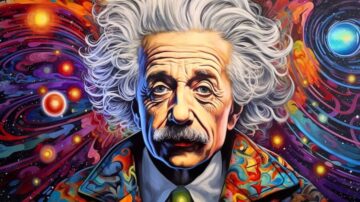Shelly Fan in Singularity Hub:
 Scientific breakthroughs rely on decades of diligent work and expertise, sprinkled with flashes of ingenuity and, sometimes, serendipity. What if we could speed up this process?
Scientific breakthroughs rely on decades of diligent work and expertise, sprinkled with flashes of ingenuity and, sometimes, serendipity. What if we could speed up this process?
Creativity is crucial when exploring new scientific ideas. It doesn’t come out of the blue: Scientists spend decades learning about their field. Each piece of information is like a puzzle piece that can be reshuffled into a new theory—for example, how different anti-aging treatments converge or how the immune system regulates dementia or cancer to develop new therapies.
AI tools could accelerate this. In a preprint study, a team from Stanford pitted a large language model (LLM)—the type of algorithm behind ChatGPT—against human experts in the generation of novel ideas over a range of research topics in artificial intelligence. Each idea was evaluated by a panel of human experts who didn’t know if it came from AI or a human. Overall, ideas generated by AI were more out-of-the-box than those by human experts. They were also rated less likely to be feasible. That’s not necessarily a problem. New ideas always come with risks. In a way, the AI reasoned like human scientists willing to try out ideas with high stakes and high rewards, proposing ideas based on previous research, but just a bit more creative. The study, almost a year long, is one of the biggest yet to vet LLMs for their research potential.
More here.
Enjoying the content on 3QD? Help keep us going by donating now.
